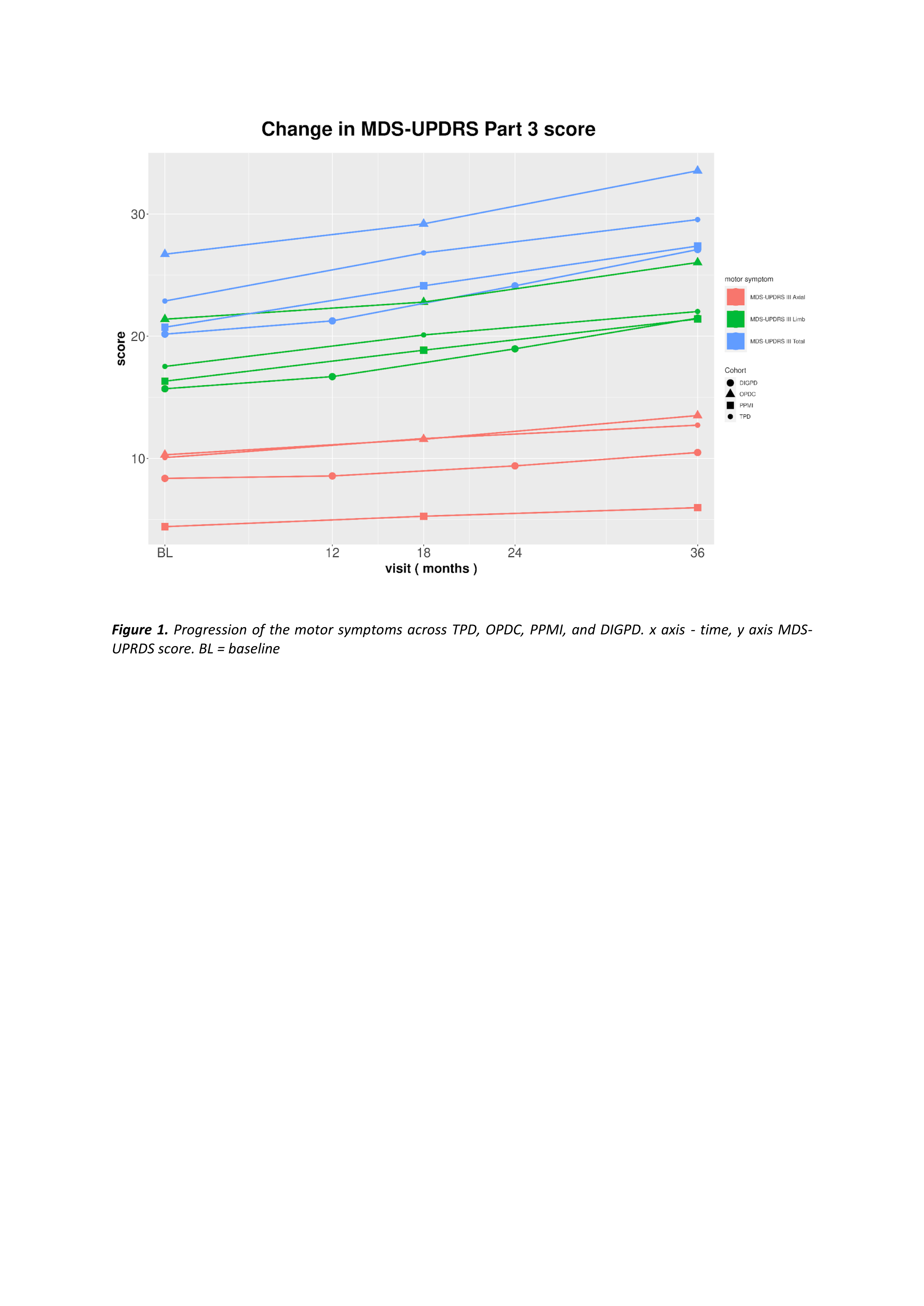Category: Parkinson's Disease: Genetics
Objective: To determine the genetic determinants of motor progression in Parkinson disease (PD) using genome-wide analysis correlated with the MDS-UPDRS Part III motor scale.
Background: Most PD genetic studies have focused on case-control approaches, rather than variants that contribute to disease progression. We aim to model the early stages of motor PD, by using the total score from the MDS-UPDRS III scale and deriving limb and axial motor sub-scale. We focus on early motor progression as this is the primary endpoint for almost all studies of disease modifying treatments, and high-quality data is available from multiple sources.
Method: We have studied 3,572 PD patients from 6 longitudinal cohorts (TPD, OPDC, PPMI, DIGPD, PDBP, PDSTAT), with 11,967 study visits from baseline up to 36 months. Following quality control, we carried out a quantitative trait GWAS and investigated the effect of imputed single nucleotide polymorphisms on motor progression. We used linear mixed models, adjusted for gender, age, and the first 8 principal components. We applied a correction based on levodopa equivalent dose in a sensitivity analysis. We have meta-analysed using METAL software.
Results: The rate of change of the different motor scores varies (0.7 and 2.3 MDS-UPDRS part III total points/year)[Figure 1] across cohorts and relates to gender, with males progressing faster (Beta = 0.50, SE = 0.13, p = 7e-4), and standardised age at diagnosis (Beta = 0.19, SE = 0.06, p = 3e-03), with older patients progressing faster. For the TPD cohort, with GBA sequencing data available, we found that the E326K mutation status was significantly associated with progression of the MDS-UPDRS-Limb sub-scale (Beta = 2.3, SE = 1.1, p = 0.036), while we did not find an association with GD mutations carrier status. Across all cohorts, there was a trend toward association between the GBA E326K variant and progression of the MDS-UPDRS III total (Beta = 1.73, SE = 0.93, p = 0.06). Variants at the LRRK2 locus were not associated with motor progression.
Conclusion: We have harmonised clinical data across multiple Parkinson’s clinical cohorts to investigate the role of candidate variants on PD motor symptom progression. The PD risk variant EE326K in GBA was significantly associated with progression on the MDS-UPDRS-Limb subscale. Further genome-wide analysis is underway and expansion of the study will increase power.
To cite this abstract in AMA style:
A. Martinez-Carrasco, M. Lawton, R. Real, M. Tan, C. Carroll, JC. Corvol, D. Grosset, M. Hu, J. Hardy, N. Williams, Y. Ben-Shlomo, M. Shoai, H. Morris. Genetic determinants of early motor progression in Parkinson’s cohorts [abstract]. Mov Disord. 2022; 37 (suppl 2). https://www.mdsabstracts.org/abstract/genetic-determinants-of-early-motor-progression-in-parkinsons-cohorts/. Accessed April 3, 2025.« Back to 2022 International Congress
MDS Abstracts - https://www.mdsabstracts.org/abstract/genetic-determinants-of-early-motor-progression-in-parkinsons-cohorts/

